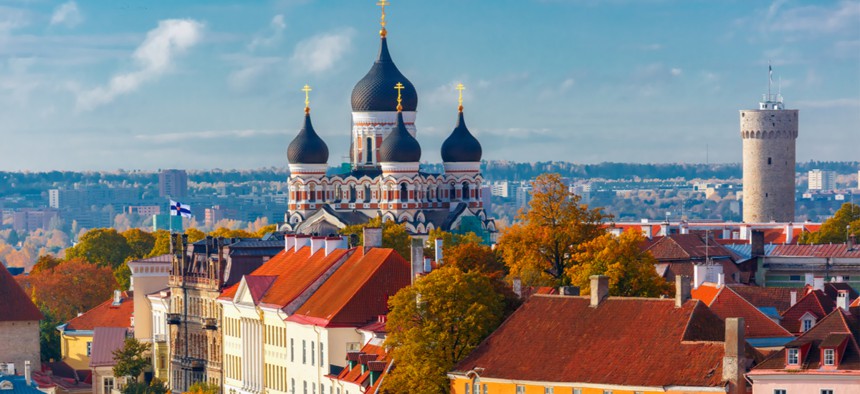Digital Nomads Can Soon ‘Make It Official’ With a New Visa From Estonia

kavalenkava/Shutterstock.com
The way workers cross borders is at a crossroads.
The way workers cross borders is at a crossroads. For Donald Trump, American jobs for American workers are paramount. Meanwhile, British Prime Minister Theresa May believes that so-called “citizens of the world” are really citizens of nowhere. And then there’s Estonia, the 100 year old Northern European nation who believes the future of work (and citizenship) is remote, distributed, and digital.
This week, in partnership with the international job search platform Jobbatical, the Estonian Ministry of the Interior announced they are developing a digital nomad visa. Karoli Hindriks, the Estonian co-founder and CEO of Jobbatical, approached Estonian government officials after noticing that the main barrier to entry for tech workers wanting to work abroad was attaining the proper visa.
“In terms of the future of work we are all navigating, there is no policy to support the new ways of working,” Hindriks said. “A digital nomad visa represents a breakthrough in the way governments support today’s mobile workforce.”
While official statistics are lacking, some people estimate the number of digital nomads—or location independent workers who need nothing more than an internet connection to do their jobs—to be at anywhere from the high hundred thousands to just over a million. A slew of startups, such as the co-living company Roam, have emerged to provide comfortable crash-pads for nomads looking to work somewhere without, you know, moving there. And sites like Nomad List track in real time which cities are most suitable for nomads in terms of weather, cost of living, average wifi speed and more.
Visa-wise, nomads generally have few choices to enjoy this location-fluid lifestyle completely legally—unless they want to wade into a lot of admin. A common modus operandi for some nomads is to arrive at a low-cost nomad hot spot like Ubud, Bali or Barcelona, Spain, enter on a tourist visa (or, for Europeans in Europe, the freedom of movement principle), and go about doing work that exists solely online. Generally, they do not officially register as a resident because they do not plan to stay long-term. When their visa is up, they can either move on, or leave the country and re-enter on a new visa. Hindriks says this way of operating “is not their fault—there’s no policy that supports a legal way to do it.”
Estonia already has a thriving startup ecosystem—as well as a government that is light-years ahead of most western democracies when it comes to digital identity and streamlining bureaucracy. Killu Vantsi, migration advisor for the Ministry of the Interior said in a press release that the country is already “at the forefront of e-solutions and our e-Residency program has already become very popular among digital nomads.” With that in mind, Hindriks says that the new visa is designed to capitalize on that reputation, and prepare Estonia more thoroughly for the future of work.
“I can’t predict the future but my gut feeling is that one thing is clear,” Hindriks said. “There is a talent shortage in most of the countries in the world and the countries who will excel economically in the future are the ones who are adapting to this. The ones who figure out how to bring people in, instead of building walls.”
So how will it work in practice? Though the visa is still in a preparation phase, Hindriks expects it will be launched in early 2019. Nomads who obtain the visa will be able to legally reside in Estonia for 365 days, and will also be entitled to a Schengen visa which allows them to visit member countries for up to 90 days. Hindriks says the idea is not necessarily to require nomad residents to pay tax, but to verify that they are a registered tax payer in their country of origin or permanent residence. Later on, the nation may explore “packages” nomads can buy, which will entitle them to public services like healthcare during their stay.
While the move may seem counter to the nationalist rhetoric we see coming from the U.S. and parts of Europe, Hindriks things the movement for more open borders and skills-over-passports is still strong, and that she is hearing similar conversations in countries like Singapore. Thailand, another nomad favorite, recently rolled out new visa policies that suit some tech-centered workers.
“Estonia is at the forefront of this,” Hindriks said. “But I think there are many countries taking steps to create policy to support the future of work and the digital community, they are just less loud. I truly hope this will set an example that this will help change the world.”
NEXT STORY: How government data is at risk





